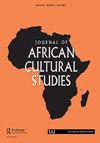Elitist and Popular Ideological Forms in Selected Nigerian Campus Novels
IF 0.7
2区 社会学
Q2 CULTURAL STUDIES
引用次数: 0
Abstract
ABSTRACT In Nigeria, the university system and its campuses are relatively new, having only been in existence for about 70 years. Within this university system, there has always been a tension about whether its role is to reproduce elites (initially considered its role), or to change society for the better, which later became the expectation of society. The tensions between these two trends in thinking about universities are transgenerational. As the nation that gave birth to these universities changed for the worse, its universities followed. This bifurcation in thinking about the role of Nigerian universities is evident in the novels that have been inspired by the Nigerian university as setting. This article argues that the Nigerian campus, in terms of ideological formation, as reflected in the novels selected for this study, is elitist in foundation and populist in progression. It argues that campus narratives, while acting as documents of elite behavioural activity, also highlight that the relationship between the evolution of Nigeria and its university system is instrumental to the formation of elite forms on campus, and reveals universities’ subsequent transformation into spaces for the creation of non-elite ideological forms in the larger society.尼日利亚校园小说选》中的精英主义和大众意识形态形式
ABSTRACT 在尼日利亚,大学系统及其校园相对较新,仅存在了约 70 年。在这一大学体系中,一直存在着一种紧张关系,即大学的作用是培养精英(最初认为大学的作用),还是为了更好地改变社会(后来成为社会的期望)。这两种关于大学的思考趋势之间的紧张关系是跨时代的。随着孕育了这些大学的国家的变迁,其大学也随之发生了变化。在以尼日利亚大学为背景而创作的小说中,这种对尼日利亚大学角色的分化是显而易见的。本文认为,尼日利亚校园在意识形态形成方面,正如本研究选取的小说所反映的那样,具有精英主义的基础和民粹主义的发展。文章认为,校园叙事在记录精英行为活动的同时,也凸显了尼日利亚的演变与其大学系统之间的关系有助于校园精英形式的形成,并揭示了大学随后转变为在更大社会中创造非精英意识形态形式的空间。
本文章由计算机程序翻译,如有差异,请以英文原文为准。
求助全文
约1分钟内获得全文
求助全文
来源期刊

Journal of African Cultural Studies
Multiple-
CiteScore
1.70
自引率
10.00%
发文量
13
期刊介绍:
The Journal of African Cultural Studies publishes leading scholarship on African culture from inside and outside Africa, with a special commitment to Africa-based authors and to African languages. Our editorial policy encourages an interdisciplinary approach, involving humanities, including environmental humanities. The journal focuses on dimensions of African culture, performance arts, visual arts, music, cinema, the role of the media, the relationship between culture and power, as well as issues within such fields as popular culture in Africa, sociolinguistic topics of cultural interest, and culture and gender. We welcome in particular articles that show evidence of understanding life on the ground, and that demonstrate local knowledge and linguistic competence. We do not publish articles that offer mostly textual analyses of cultural products like novels and films, nor articles that are mostly historical or those based primarily on secondary (such as digital and library) sources. The journal has evolved from the journal African Languages and Cultures, founded in 1988 in the Department of the Languages and Cultures of Africa at the School of Oriental and African Studies, London. From 2019, it is published in association with the International African Institute, London. Journal of African Cultural Studies publishes original research articles. The journal also publishes an occasional Contemporary Conversations section, in which authors respond to current issues. The section has included reviews, interviews and invited response or position papers. We welcome proposals for future Contemporary Conversations themes.
 求助内容:
求助内容: 应助结果提醒方式:
应助结果提醒方式:


